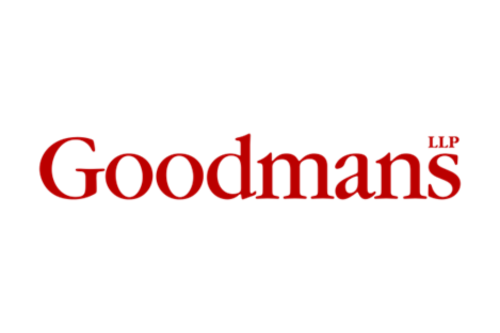A DECISION BY the Supreme Court of British Columbia giving three Eritrean men the green light to proceed with a modern-day slavery lawsuit against Vancouver-based Nevsun Resources Ltd. in Canada rather than Eritrea has implications for hundreds of Canadian companies that do business or have suppliers based in countries with questionable human-rights records, lawyers say.
In the ruling handed down on October 6, Justice Patrice Abrioux wrote that “there is sufficient cogent evidence from which I can conclude that there is a real risk that the plaintiffs could not be provided with justice in Eritrea.”
The decision, which is on jurisdiction and not the merits of the allegations, marks the first time a Canadian court has agreed to hear a tort claim for modern slavery. But regardless of whether the judgment is overturned on appeal — and it will almost certainly be appealed — two elements of Gize Yebeyo Araya, Kesete Tekle Fshazion and Mihretab Yemane Tekle v. Nevsun Resources Ltd. should have M&A and corporate lawyers sitting up and taking notice.
The first has to do with the use of holding companies, and the extent to which they insulate the parents from direct liability for actions halfway around the world. Normally, each company is treated as an individual entity not responsible for the actions of another, and courts have been very reluctant to pierce the corporate veil. Not so in Nevsun.
The Vancouver company had three interposing subsidiaries incorporated in Barbados between it and the operating mine in Eritrea, says Nicholas Baker, a class-action litigator at Siskinds LLP in London, Ontario and one of the team bringing the suit against Nevsun. In a novel argument for Canada, the team successfully argued that Nevsun’s involvement in the policy and affairs of the mine’s operating subsidiary was in excess of the “normal role of association” between a holding company and a subsidiary.
“We say through its conduct, Nevsun’s Canadian head office brought itself into a relationship with the plaintiffs,” Baker says. Similar findings have been made by courts in the UK and Australia, and “it seems to be the way the law is going.”
The BC court’s decision to allow the case against the parent company to go forward (the holding companies aren’t even named as co-defendants) suggests that anyone who sits on the board of directors or management team of a Canadian public company that uses offshore holding companies in its corporate structure would be wise to limit their involvement in the end company’s affairs, says Baker.
“I think they need to be looking at their involvement in the policy and affairs of their operating subsidiaries, making sure it’s not in excess of the normal role between a holding company and an operating subsidiary,” he says. “That’s the key here.”
For M&A lawyers, identifying and managing possible risk involved in any target or merger partner, including the risk of human-rights violations halfway around the world, is pretty humdrum stuff. Post-Nevsun, Baker says they’re also going to also have to start examining whether a target’s parent company “may have brought itself into a relationship with people affected such as to give rise to a duty of care. So it means more work.”
A senior Bay Street lawyer who spoke on condition of anonymity says he and most of his peers are alive to the issue, and have recently begun to increase the insulation factor. He’s working on something right now in which there are over 30 clauses covering things like co-mingling of assets or corporate names. “It’s basically designed to try to rebut the potential that someone could ever try to ignore the separate existence of the company, and go behind the company to its shareholders.” Such detailed covenants are “an unusual feature,” he says, “but we’re seeing more of it.”
In the second ground-breaking element to the decision, Justice Abrioux allowed the claims that Nevsun was an accomplice to crimes against humanity, slavery, forced labour and torture to go forward through the so-called “doctrine of adoption.”
Using the argument that a corporation can be sued civilly for “aiding and abetting” such crimes is believed to be a case of first impression. “It’s an emerging area of international law that corporations may also have civil liability if they have aided and abetted the violations in any way,” says Joe Fiorante of Camp Fiorante Matthews Mogerman LLP in Vancouver, which is also on the plaintiffs’ team.
Unless Nevsun is overturned, the same argument may be used against all kinds of public companies whose supply chain extends into countries with dubious human-rights records. “There has been lots of reporting around issues of forced labour in supply chains for various products,” says Fiorante. These included claims of indentured servitude of shrimp fishermen in Thailand, for example, with the shrimp sold in large North American grocery chains.
Many garment companies, under pressure to expand into lower-cost jurisdictions around the world, use contractors to manage their manufacturing –– and the contractors may operate in developing countries where employment laws may be weak or non-existent and human-rights protections dubious. It’s not uncommon to see clothing manufactured in Cambodia, Mexico, Bangladesh or Vietnam in most worldwide retail chains, and The Wall Street Journal has reported that several clothing giants are beginning to move away from Asia to even lower-cost jurisdictions in Africa such as Ethiopia.
“The extent to which we are successful with continuing a claim in the courts of Canada for human-rights abuses that took place abroad, we’re certainly opening the door to more of these kinds of cases,” Fiorante says. He says a number of NGO’s in the human rights field are watching Nevsun closely. “From my understanding off conferences I’ve attended in Europe, this is a serious issue for M&A lawyers that they look at the entire supply chain for potential human-rights risks. Are we there yet? No. But could it be possible? Yes, certainly.”
The Nevsun case has special importance for extractive companies, who can’t just up and move their deposits to more socially enlightened countries, says Angela Austman, a partner at Lawson Lundell LLP. If the BC decision is overturned on appeal, she says, it’s going to make it difficult for M&A lawyers like herself to advise an acquiring company what steps are sufficient to establish a solid due-diligence defence.
“I’d be very nervous about proceeding with an acquisition right now, before we have some clarity on the outcome of this challenge,” says Austman, “without having a really good, strong sense of the operations, protections and steps being taken by the operating company and the parent company around the local operations.”
The parent may need to keep a monitoring program “on the ground,” if they’re not already doing so, to make sure their CSR policies are being respected in order to mitigate the risks of being pulled into court, she says. “They don’t want to be the next headline.”
Nevsun declined to provide comment through its lawyers at Fasken Martineau DuMoulin LLP.





